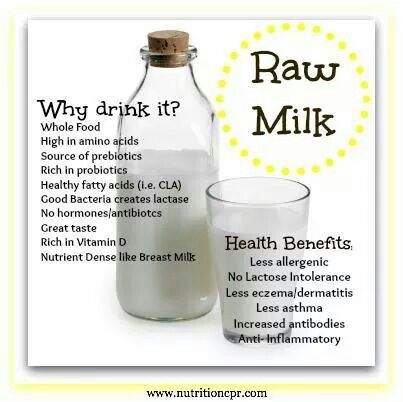The Benefits of Drinking Raw Milk
When it comes to milk, there are various options available in the market. One such option is raw milk, which has gained popularity in recent years due to its potential health benefits. In this article, we will explore the benefits of drinking raw milk and why it may be a good choice for some individuals.
Nutrient-rich
Raw milk is known for its rich nutrient profile. It contains essential vitamins, minerals, and enzymes that can contribute to overall health and well-being. These nutrients include calcium, potassium, magnesium, vitamin D, and vitamin B12, among others. By consuming raw milk, you can ensure that your body receives these vital nutrients in a natural and unprocessed form.

Enzymes and Probiotics
Unlike pasteurized milk, raw milk retains its natural enzymes and beneficial bacteria, commonly known as probiotics. These enzymes and probiotics play a crucial role in supporting digestion and promoting a healthy gut. They can help break down lactose, improve nutrient absorption, and support a balanced gut microbiome. By incorporating raw milk into your diet, you can potentially enhance your digestive health.
Reduced Allergenicity
Some individuals who are intolerant or allergic to pasteurized milk may find that they can tolerate raw milk better. The pasteurization process can alter the proteins in milk, making them more allergenic. Drinking raw milk, which is in its natural state, maybe a suitable alternative for those with milk allergies or intolerances. However, it is crucial to consult with a healthcare professional before making any dietary changes.
Potential Anti-Inflammatory Properties
Raw milk contains various bioactive compounds, such as immunoglobulins and anti-inflammatory cytokines, which may have potential anti-inflammatory properties. These properties can help reduce inflammation in the body and support overall immune function. While more research is needed in this area, incorporating raw milk into a balanced diet may offer additional benefits beyond basic nutrition.
Taste and Quality
Many individuals who consume raw milk appreciate its taste and quality. Raw milk often has a richer and creamier flavor compared to pasteurized milk. Additionally, some people believe that raw milk sourced from grass-fed cows may have a more favorable fatty acid profile, which can contribute to its overall taste and quality.
FAQs about the Benefits of Drinking Raw Milk
1. Is raw milk healthier than pasteurized milk?
Yes, raw milk contains beneficial enzymes, vitamins, and probiotics that are destroyed during pasteurization.
2. Does raw milk improve digestion?
Absolutely! Raw milk contains natural enzymes that aid in the digestion of lactose and other nutrients.
3. Can raw milk boost the immune system?
Yes, raw milk contains antibodies and beneficial bacteria that can strengthen the immune system.
4. Does raw milk help with allergies?
Many individuals with lactose intolerance or milk allergies find that they can tolerate raw milk better due to its natural enzymes.
5. Does raw milk promote healthier skin?
Yes, raw milk contains vitamins and fatty acids that can nourish and improve the appearance of the skin.
6. Can raw milk help with weight loss?
Raw milk is a nutrient-dense food that can provide satiety and support a balanced diet, potentially aiding in weight loss.
7. Does raw milk have a higher nutritional value?
Yes, raw milk retains its full nutritional profile, including vitamins, minerals, and healthy fats.
8. Is raw milk beneficial for bone health?
Raw milk is a rich source of calcium, phosphorus, and other nutrients essential for maintaining strong and healthy bones.
9. Can raw milk reduce the risk of asthma?
Some studies suggest that consumption of raw milk during childhood may reduce the risk of developing asthma.
10. Does raw milk taste better than pasteurized milk?
Taste preference varies, but many people find raw milk to have a richer and creamier flavor compared to pasteurized milk.
Drinking raw milk can provide various benefits, including a rich nutrient profile, enzymes, and probiotics, reduced allergenicity, potential anti-inflammatory properties, and a unique taste experience. However, it is important to note that raw milk carries a higher risk of bacterial contamination compared to pasteurized milk. Therefore, it is crucial to ensure that the raw milk comes from a reliable and trusted source, such as local farms with high-quality standards. As with any dietary choice, it is recommended to consult with a healthcare professional to determine if raw milk is suitable for your individual needs.




